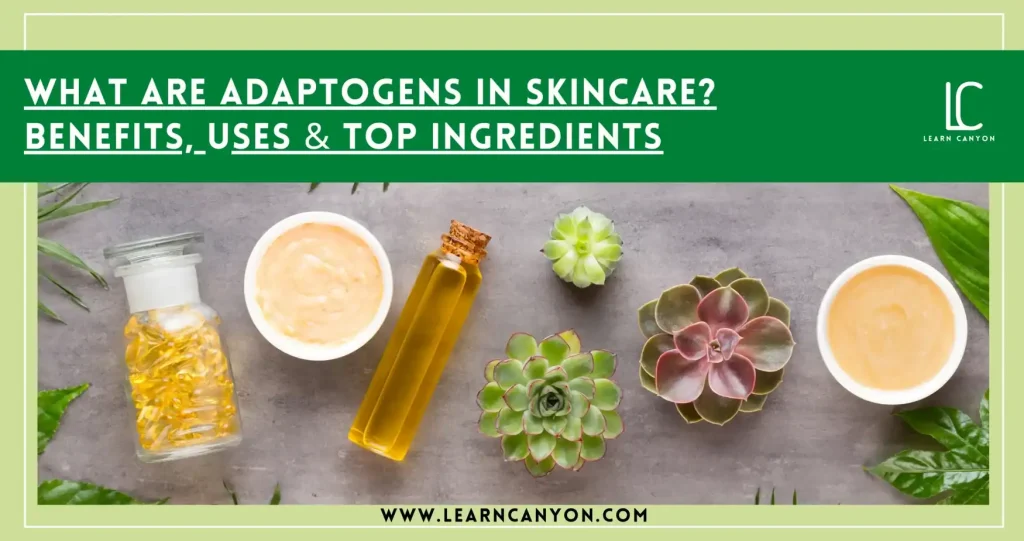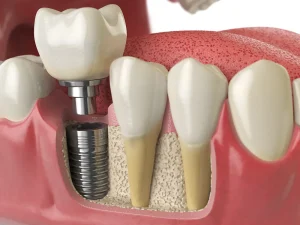Adaptogenic Herbs and Natural Supplements for Stress-Related Acne
4 min read
You know the feeling. A big deadline looms, a personal conflict simmers, and suddenly, your skin decides to stage a full-scale rebellion. It’s not a coincidence. Stress-related acne is a very real, very frustrating cycle. Your body releases cortisol, a stress hormone, which can send your oil glands into overdrive and spark inflammation—the perfect storm for breakouts.
And honestly, that just makes you more stressed, right? It’s a vicious loop. But what if you could support your body’s ability to handle stress from the inside out? That’s where adaptogenic herbs and some key natural supplements come in. They’re not a magic wand, but they can be powerful allies in calming both your mind and your complexion.
What Are Adaptogens, Anyway? Your Body’s Stress Thermostat
Let’s break it down. Think of adaptogens as your internal thermostat. When life turns up the heat with stress, they help your body cool down and find its balance, or homeostasis. They’re a unique class of healing plants that help the body resist physical, mental, and emotional stressors.
They’ve been used for centuries in Ayurvedic and Traditional Chinese Medicine, and now modern science is catching up. For stress-induced breakouts, they work by modulating your stress response, which in turn can help tame cortisol-related inflammation and oil production.
The Top Adaptogens for Calming Skin and Nerves
Not all adaptogens are created equal. Some are particularly well-suited for tackling the skin-stress connection. Here are a few of the heavy hitters.
Ashwagandha: The Classic Calmer
Often called Indian Ginseng, Ashwagandha is perhaps the most famous adaptogen for a reason. It’s fantastic for promoting a sense of calm and resilience. By helping to lower cortisol levels, it indirectly addresses one of the root causes of your stress breakouts. Less systemic stress means less inflammatory signaling telling your skin to freak out.
Rhodiola Rosea: The Fatigue Fighter
If your stress feels like exhaustion and burnout, Rhodiola might be your best bet. It’s known for enhancing mental stamina and reducing fatigue. This is key because when you’re less drained by stress, your body has more resources for things like, well, maintaining clear skin. It helps prevent that wired-and-tired feeling that can exacerbate hormonal imbalances.
Holy Basil (Tulsi): The Soothing Sanctifier
Holy Basil, or Tulsi, is a gentle yet powerful herb. It’s considered a sacred plant in India for its purifying properties. From a scientific standpoint, it’s an adaptogen with strong anti-inflammatory and antioxidant benefits. It supports a healthy response to stress while also helping to combat the oxidative damage that stress inflicts on your skin cells. A true double-duty player.
Essential Non-Adaptogenic Supplements for Skin Support
While adaptogens manage the stress, other supplements can directly support skin healing and balance. Think of them as your skin’s repair crew.
Zinc: The Inflammation Bouncer
Zinc is a crucial mineral for skin health. It acts like a bouncer at a club, kicking out inflammation and helping to regulate oil production. Studies have shown that people with acne often have lower levels of zinc. Supplementing can help reduce the severity and number of breakouts.
Omega-3 Fatty Acids: The Moisture Managers
Found in fish oil and algae oil, Omega-3s are powerful anti-inflammatories. They help fortify your skin’s lipid barrier, which is often compromised in acne-prone skin. A stronger barrier means better hydration and less irritation—making your skin less reactive to both internal and external stressors.
Probiotics: The Gut-Skin Axis Connector
The gut-skin axis is a huge topic in dermatology right now. An imbalance in your gut microbiome can directly contribute to systemic inflammation and, you guessed it, acne. A quality probiotic helps maintain a healthy gut flora, which can lead to a calmer, clearer complexion. It’s all connected.
How to Integrate These Powerhouses Safely
Okay, so you’re ready to try them. Here’s the deal—you can’t just throw a bunch of supplements at the wall and see what sticks. A thoughtful approach is everything.
- Start Low and Go Slow: Introduce one new supplement at a time. This way, you can actually gauge how your body and skin respond.
- Consult a Pro: Seriously, talk to your doctor or a qualified naturopath before starting any new regimen, especially if you have pre-existing conditions or are on medication.
- Quality Matters: Look for reputable brands that use third-party testing to ensure purity and potency. You get what you pay for here.
- Patience is a Virtue: These are not overnight fixes. It can take 4 to 6 weeks, sometimes longer, to notice a significant difference in both your stress levels and your skin.
A Simple Comparison: Your Adaptogen Cheat Sheet
| Herb/Supplement | Primary Benefit for Stress Acne | Best For… |
| Ashwagandha | Lowers cortisol, promotes calm | General anxiety and overwhelm |
| Rhodiola | Fights fatigue, enhances stamina | Burnout and mental exhaustion |
| Holy Basil | Reduces inflammation, antioxidant | Gentle, daily stress support |
| Zinc | Directly reduces skin inflammation | Oily, inflamed, and angry breakouts |
| Omega-3s | Strengthens skin barrier, anti-inflammatory | Dry, sensitive, and reactive skin |
In the end, managing stress-related acne is about shifting your perspective. It’s not just about what you put on your skin, but how you support your body’s entire ecosystem. Adaptogens and targeted supplements offer a way to do that—to build resilience from the inside. They help you meet stress with a little more grace, and in doing so, they remind your skin that it’s okay to relax, too.






